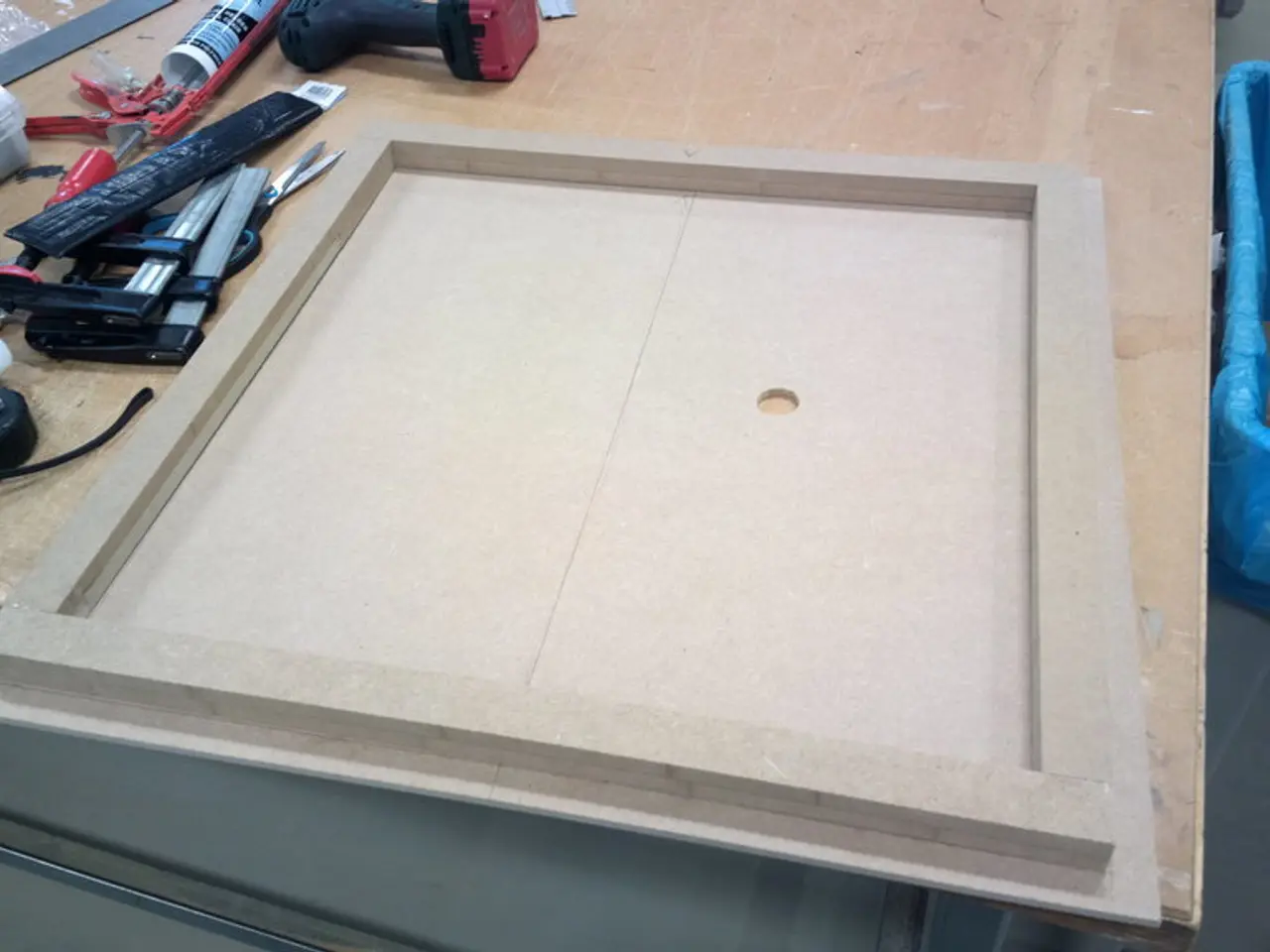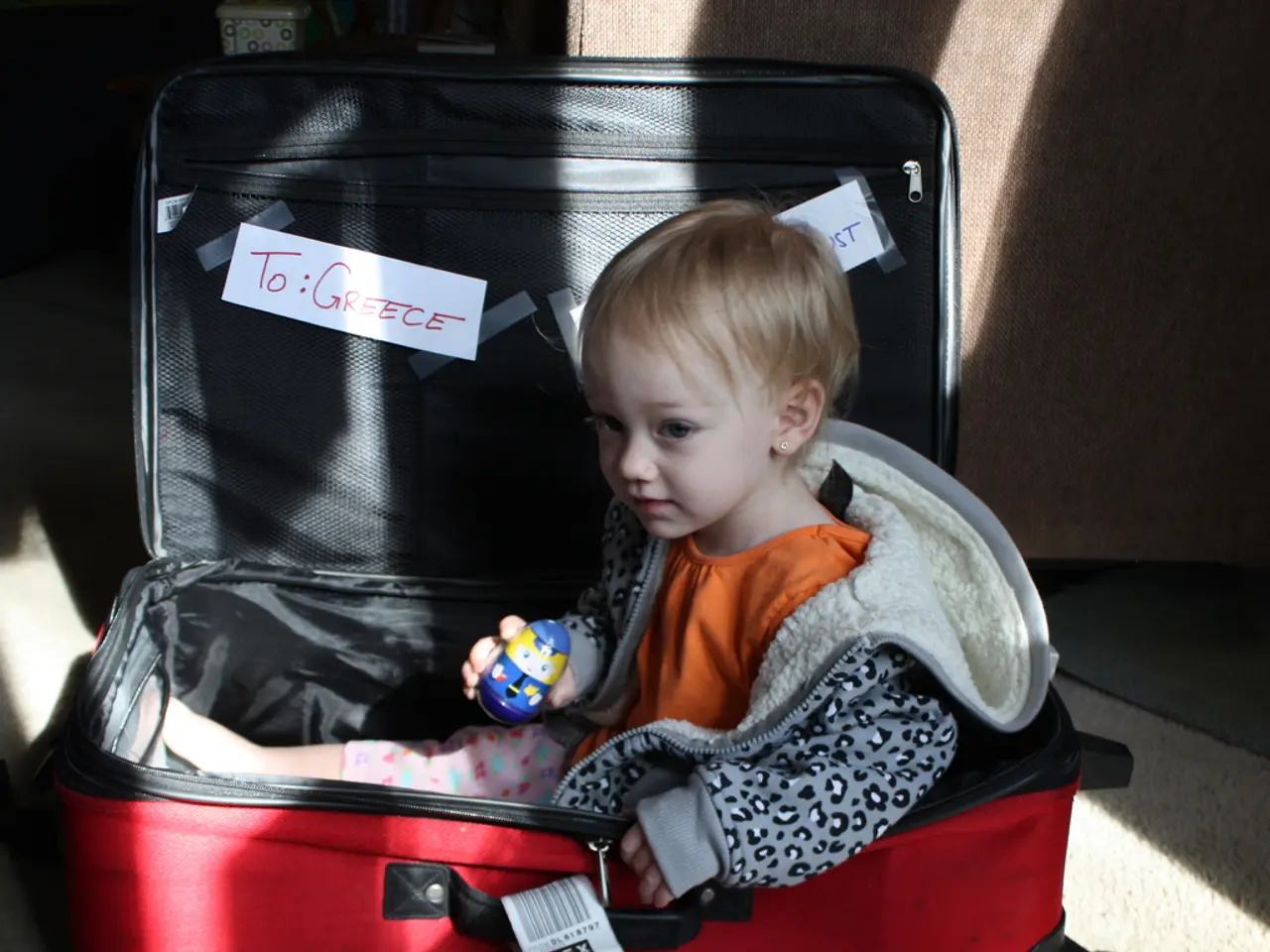Convenient Organizational Strategies for Homes with Neurodivergent Residents
In a world where clutter can often lead to overwhelming stress, finding a home organization system that caters to the unique needs of neurodivergent individuals is crucial. By emphasizing simplicity, sensory comfort, clear visual cues, flexible structures, and leveraging technology designed to support executive function challenges, neurodivergent people can create personalized home organization systems that promote focus, reduce distractions, and foster a sense of empowerment.
Visual Cues and Clear Labels
Transparent containers and distinct labels help reduce cognitive load by making items easily identifiable and accessible, supporting focus and memory. This approach can be particularly beneficial for neurodivergent individuals who may struggle with information overload.
Manageable Tasks
Breaking tasks into manageable chunks, such as setting short, timed decluttering sessions (e.g., 15 minutes), can prevent overwhelm and improve consistency. Recognize that some tasks may take longer but can be segmented to feel more achievable.
Managing Expectations
Prioritizing "done is better than perfect" encourages completion and reduces the paralysis caused by perfectionism, common in ADHD and other neurodivergent experiences. This mindset allows for progress, even if it's not perfect, and helps to reduce stress and increase productivity.
Sensory-Friendly Environments
Adjusting lighting, reducing noise, and allowing personalization with sensory comforts (like fidget tools or plants) supports sensory sensitivities and reduces stress. Creating a sensory-friendly environment that caters to an individual's specific needs can significantly improve their overall well-being.
Flexible and Personalized Systems
Neurodivergent people's strengths and challenges vary greatly; organization systems should be adaptable, incorporating personal routines, comfort preferences, and accommodating fluctuations in attention or energy.
Leveraging AI and Assistive Technology
Emerging AI tools can help with executive function by offering adaptive scheduling, reminders, customized learning platforms, and sensory processing aids that identify individual triggers to recommend environmental modifications. These tools can be especially helpful for neurodivergent people who may struggle with traditional paper-based organization systems.
Involving Neurodivergent Perspectives
Co-designing organizational tools and systems with neurodivergent input ensures they meet actual needs and avoid common pitfalls caused by one-size-fits-all approaches or neurotypical biases.
Practical Applications
In practice, this might look like creating a clutter-free zone using transparent bins with labels, maintaining daily 15-minute tidy-ups, ensuring work or hobby spaces have adjustable lighting and noise control features, and using smartphone apps or AI assistants for task reminders and time management.
Additional Tips
- Using brightly colored or patterned storage containers can make it easier to locate items quickly.
- Finding an exercise buddy or joining a fitness class can help keep motivation.
- Simple activities like walking, yoga, or dancing can help boost mood and overall health.
- Using visual reminders, such as sticky notes or a whiteboard, can help keep tasks and priorities top of mind.
- Keeping the kitchen organized can help eating at home more manageable.
This approach aligns with practical advice from ADHD organization experts and supports sensory and executive function needs common across many neurodivergent profiles. By understanding and catering to these needs, neurodivergent individuals can create home organization systems that promote productivity, reduce stress, and foster a sense of empowerment.
- The use of transparent containers and distinct labels in home organization systems helps reduce cognitive load for neurodivergent individuals, supporting focus and memory.
- Breaking tasks into manageable chunks, such as short, timed decluttering sessions, can prevent overwhelm and improve consistency for all individuals, especially neurodivergent ones.
- Encouraging a mindset of "done is better than perfect" can reduce the paralysis caused by perfectionism, common in neurodivergent experiences, and help improve productivity.
- Adjusting lighting, reducing noise, and allowing personalization with sensory comforts can support sensory sensitivities and reduce stress in a neurodivergent individual's environment.
- Flexible and personalized home organization systems should incorporate personal routines, comfort preferences, and accommodating fluctuations in attention or energy for neurodivergent people.
- Emerging AI tools can provide support for neurodivergent people by offering adaptive scheduling, reminders, customized learning platforms, and sensory processing aids that cater to individual needs.
- Co-designing organizational tools and systems with neurodivergent input ensures they effectively meet the needs of neurodivergent individuals and avoid common pitfalls caused by one-size-fits-all approaches or neurotypical biases.
- A clutter-free zone with transparent bins, daily 15-minute tidy-ups, adjustable lighting and noise control features for work or hobby spaces, and smartphone apps or AI assistants for task reminders and time management can help promote productivity and reduce stress for neurodivergent individuals.
- Using brightly colored or patterned storage containers, finding an exercise buddy, taking simple activities like walking, yoga, or dancing, using visual reminders, and keeping the kitchen organized can provide additional tips for improving home organization, sensory comfort, and well-being for neurodivergent individuals.
- This approach to home organization aligns with practical advice from ADHD organization experts and supports sensory and executive function needs common across many neurodivergent profiles.
- By understanding and catering to the unique needs of neurodivergent individuals, their personalized home organization systems can positively impact productivity, reduce stress, and foster empowerment, especially in areas like wellness, mental health, lifestyle, fashion-and-beauty, home-and-garden, education-and-self-development, and productivity.




